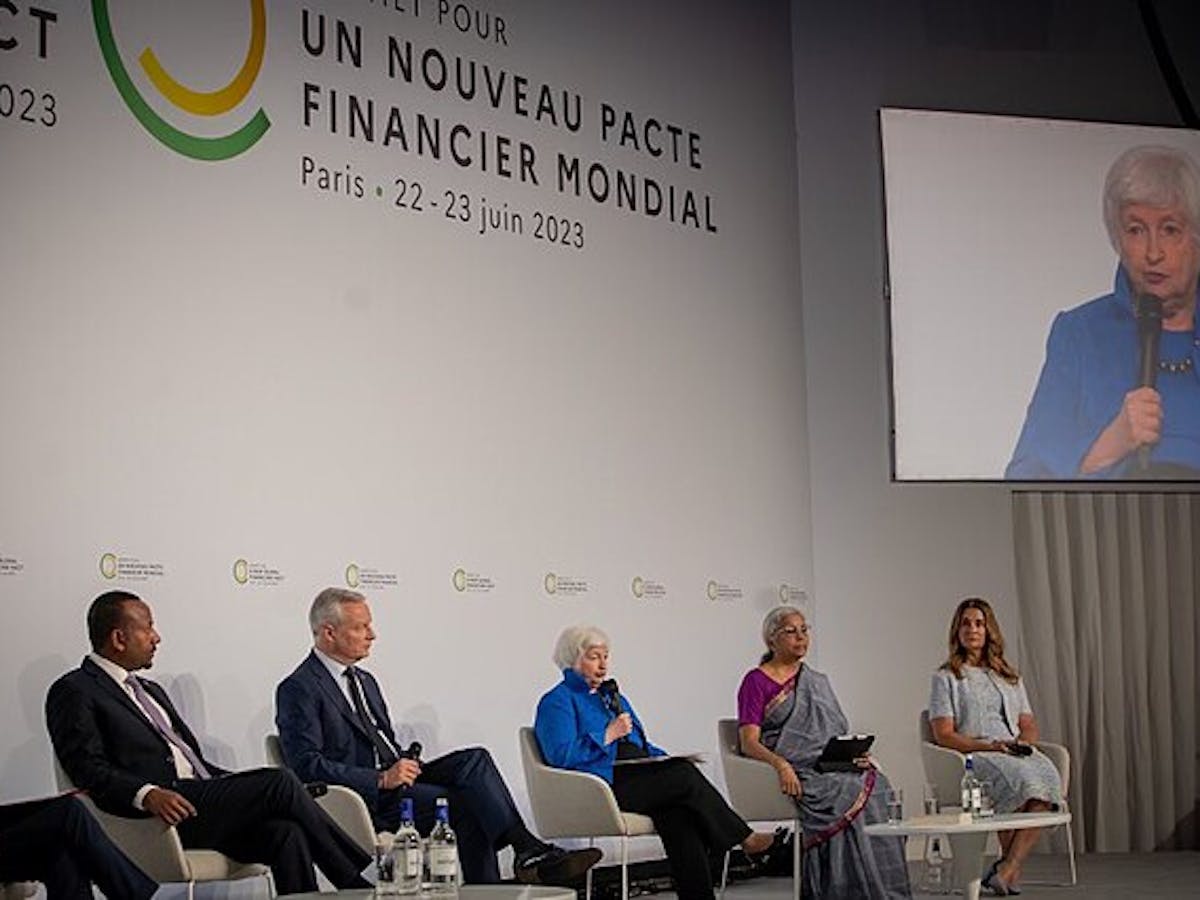Written by Alex Scott, Dileimy Orozco, Frank Schroeder, Franklin Steves
26 Jun 2023
Leaders’ conclusions from the ‘New Global Finance Pact’ Summit in Paris show Barbados and V20 (The Vulnerable Twenty) calls for the transformation of the global financial system are now firmly global. While no new finance or debt relief was delivered for developing countries, the chair’s summary and roadmap provide a basis for accountability and transparency for citizens and civil society to track progress and put pressure where needed.
The Summit’s final leaders’ roundtable solidified a refreshing change in the political dynamic taking place outside the world’s multilateral decision-making bodies. Defying traditions of diplomacy, leaders openly disagreed with each other. They called out each other’s responsibilities. The push from developing countries to confront global challenges and co-design solutions emerged loud and clear. Their call for reforming the governance of multilateral institutions for equal voice and representation can no longer be ignored.
Leaders, ministers, heads of institutions and multilateral development bank (MDB) governors mixed with civil society, academia and philanthropy over conversations that reached new levels of ambition to change how our finance system delivers capacity to develop and address climate change. Leaders made clear they want their economies to be resilient to risk, including climate, and to increase their agency when climate disasters hit them.
The few financing deals concluded to get money moving immediately included a debt restructuring deal with Zambia and just energy transition financing partnership with Senegal. New commitments from the World Bank, France, US and UK to use climate resilient debt pause clauses will help to give developing countries breathing room on debt repayments when climate disasters hit.
New pledges to re-channel special drawing rights (the IMF reserve assets that were released during COVID to help governments manage their balance sheets) get the world closer to the $100bn target intended to open up new fiscal space for developing economies. That target is not quite met though, despite IMF Head, Georgieva’s fanfare, as the tally relies on a $21bn pledge from the US that is tied to their domestic political battles. Leaders missed the opportunity to immediately open up the usefulness of this reserve asset by channeling them through MDBs as well as the IMF trust funds with restrictive eligibility criteria, though calls for this are included in the concluding roadmap.
Overall, while welcome, these pledges don’t yet represent the kind of downpayment needed to restore confidence in these multilateral institutions nor activate the levers that could mobilise the trillions in private capital called for at every Summit roundtable.
The Summit Chair’s Summary and Roadmap do offer a vision and pathway to getting there. The MDBs needed a mandate to evolve towards global challenges, to seek further capital injections and to be more creative in their use of their Capital Adequacy Frameworks. And they got all three.
Issues around debt sustainability still feel intractable; but the emergence of leadership from Kenya and Colombia to set up a new Global Expert Review on Debt, Nature and Climate offers hope. They’re set to establish it by COP28 with a mandate to assess the impact of debt levels on the ability of countries to accelerate a just, resilient transition.
Barbados brought new innovations for managing the disproportionately high costs of borrowing for developing countries by enhancing the currency risk management architecture.
The energy, the dynamism and the big new ideas continue to come from developing countries. It is vital that the developed countries now step up and deliver. We will see where the courage and commitment lies as President Macron gathers signatures to the concluding outcome document named Paris Agenda for People and Planet.
Rebooting the system requires protracted efforts, long-term focus, solid political support and ongoing activism from civil society. It doesn’t have to take an age – Kenyan President Ruto reminded us the original Breton Woods institutions were designed over a three-week summit. France committed to co-convene a stackable summit alongside the Summit for the Future in September 2024 so we have our end point.

